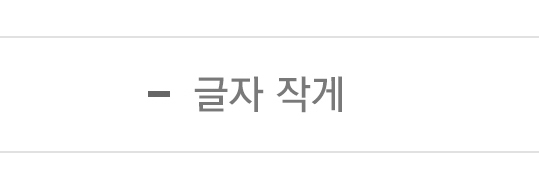
|
성공을 부르는 인성 교육의 비밀 | |||
| 오늘날 전 세계적 경쟁과 자동화의 물결은 빈부와 행복, 성공과 실패의 간... |


  |
 |  |
오늘날 전 세계적 경쟁과 자동화의 물결은 빈부와 행복, 성공과 실패의 간극을 더욱 크게 벌리고 있다. 이 격차를 좁히기 위해 우리가 할 수 있는 일은 무엇일까? 각 개인의 인성을 키우는 교육이 해법일 것이다. 성공을 부르는 인성의 비밀! 이에 대해 알아보기로 하자.
1940년에 대기업 제너럴 모터스를 컨설팅하던 피터 드러커는 훗날 ‘뛰어난 리더’의 모범이 된 알프레드 슬론 회장과 만났다. 슬론 회장의 특별한 통찰력이 드러커를 사로잡았다. “최고경영자는 직원이 일하는 방식에 대해 관대해야 하고 과도하게 신경 쓰지 말아야 한다. 직원을 평가하는 기준은 단지 성과performance와 인성character이어야 한다.”
그로부터 70년이 지난 지금도 성과와 인성은 CEO부터 말단 직원에 이르기까지 개인이 조직에 기여하고 있는지 판단하는 핵심 기준이다. 그럼에도 불구하고 여전히 인성이 아니라 업무 성과가 사람들을 평가하는 주된 기준으로 통용된다.
대학 입학 후 학생들은 학업 성과에 따라 성적을 받고, 직장인들은 직장 생활 내내 업무 성과에 따라 평가 받고 연봉 인상과 승진이 결정된다. 이 사실이 주는 메시지는 명확하다. “높은 성과가 성공을 이끈다!”
그렇다면 슬론이 말했던 ‘인성’은 어떻게 된 것인가? 인성은 측정이 어려워 평가에 반영되기 수월하지 않기 때문일 수 있다. 하지만 성과만큼이나 인성도 성공에 중요한 요소이며 그 중요성은 점점 더 커지고 있다.
노벨 경제학상을 수상한 제임스 헤크먼 시카고 대학 경제학과 교수는 <성취도 평가의 신화The Myth of Achievement Tests>란 책에서 다음과 같이 주장했다. “인성 역량이란 인지 역량만큼이나 중요하다. 인생에서 성공하려면 다양한 역량이 필요하다. IQ나 성취도 평가 점수 등의 인지적 특성과 더불어 인격 또는 인성의 중요성이 수많은 연구를 통해 입증되었다. 오히려 점점 더 인성의 중요성이 더욱 부각되는 추세다.”
브루킹스 연구소 산하 ‘어린이와 가족 센터’의 전문가들이 내놓은 “인성과 기회에 관한 연구” 시리즈 중 한 권을 통해 헤크먼 교수가 지적한 바대로, 개인의 인성이란 태어나면서부터 가지고 나는 것이 아니다. 주로 청소년기에 형성되는 인지 역량과는 달리, 인성 역량은 개인의 삶 전체에 걸쳐 형성되고 변형될 수 있는 것이다.
인성을 외면한 채 인지 역량 개발과 성과 보상에만 중점을 두는 교육 시스템은 학생들의 성공에 큰 도움이 될 수 없다는 점이 명확해 보인다. 더 나아가 성과만으로 최고의 자리에 오를 수 있는 환경을 만든다면 개인이 속한 사회와 세상에 더 큰 해악을 끼칠 수도 있다. 시어도어 루즈벨트 대통령이 밝힌 것처럼 “도덕을 배제한 채 학습만 시키는 것은 사회에 위협적 존재를 기르는 것과 마찬가지다.” 모기지론 사기, 기업 비리, 증권 사기 등 인성은 형편없으면서 똑똑하기만 한 고학력자들이 사회와 국가 경제에 해를 끼친 사례는 최근만 해도 셀 수 없을 정도로 많다.
개인의 인성이 이렇게 중요하다면, 성과뿐 아니라 인성도 길러내는 교육과정을 어떻게 만들 수 있을까? 쉽지 않은 문제지만, 다행히도 우리가 따를 만한 좋은 모델이 하나 있다.
토머스 릭코나Thomas Lickona 교수와 매튜 데이비드슨Matthew Davidson 교수는 2005년 국가에 제출하는 보고서 성격의 저서 <똑똑하고 좋은 고등학교Smart and Good High Schools>를 통해 이렇게 설명한다. “전 세계 인류 역사와 문화를 통틀어 올바른 교육에는 두 가지의 위대한 목표가 있었다. 학생들을 똑똑하게 만드는 것, 그리고 학생들을 훌륭하게 만드는 것이다! … 인성이란 이 두 가지 목표, 즉 우수함과 윤리에 이르게 하는 길이다. … 학교, 직장, 그리고 그 이후에도 탁월한 잠재력을 발현하기 위해서는 근면성, 직업윤리, 긍정적 태도, 인내심 같은 ‘수행 인성performance character’이 필요하다. 원만한 대인관계를 위해서는 진정성, 존중, 협력, 정의감 같은 ‘도덕 인성moral character’이 있어야 한다. 수행 인성을 갖추지 못한 젊은이는 능력을 개발할 수 없고 생산적인 삶을 이끌 수 없다. 즉 국가로서는 유능하고 경쟁력 있는 인력을 가질 수 없게 되는 것이다. 또한 도덕 인성을 갖추지 못한 젊은이는 윤리적인 삶을 살 수 없다. 그러면 사회는 거짓말쟁이와 도둑으로 가득 차게 될 것이다. … ‘똑똑하고 좋은 고등학교’ 프로그램에서는 일상적 행사, 훈육, 교육과정, 공동 활동 등 학교생활의 모든 요소가 우수함과 윤리를 수양할 수 있는 기회로 활용된다.”
릭코나 교수와 데이비드슨 교수는 이어서 성공하고 행복한 삶을 살아가기 위한 ‘인성을 갖춘 사람의 8가지 강점’을 열거한다.
1. 평생 배우고 비판적으로 생각할 수 있는 사람
2. 근면하고 능력 있는 사람
3. 사회성과 공감 능력을 갖춘 사람
4. 윤리적으로 사고하는 사람
5. 존경받고 책임감 있는 도덕적인 사람
6. 건강한 삶을 추구하는 자제력이 강한 사람
7. 사회에 기여하는 민주 시민
8. 올바른 삶의 목적을 가진 사람
이들은 ‘똑똑하고 좋은 고등학교’의 비전을 설정하기 위해 이론 연구와 실험, 20여 개 고등학교에 대한 실제 조사를 진행했다. 이러한 고등학교를 그들은 ‘윤리적 학습 커뮤니티’라고 칭하는데, 이곳들에서는 교사, 학생, 학부모, 지역이 합심하여 수행 인성과 도덕 인성을 개발하고, 인성의 8가지 강점을 극대화하는 데 중점을 둔다.
젊은이에게 수행 인성과 도덕 인성을 함양시켜 주기 위해, 그들이 제안하는 전략은 다음과 같다.
▶ 학생들을 지원하면서도 적절히 요구하는 교실 환경을 조성하라. 학생들이 특이한 의견도 편안한 마음으로 발표할 수 있어야 하며, 합리적으로 평가 받는 한편, 학생들에게 다양한 관점에서 주제를 탐구하도록 요구해야 한다.
▶ 교사는 학생들과 속임수나 거짓말이 학교의 명예를 실추시키고 그들의 교육, 진정성, 자존감을 파괴한다는 점을 함께 논의해야 한다. 학생들은 정직에 중점을 두는 학교 문화를 만드는 일에 역할을 담당해야 한다.
▶ 학생들이 서로 간에 조언할 수 있는 그룹이 만들어져야 하며, 이 그룹의 구성원들은 수행 인성, 도덕 인성 및 인성의 8가지 강점과 연관된 목표를 설정하고 추구하도록 서로를 지원하고 자극해야 한다.
▶ 신입생 시절에 학생들은 자신이 어떤 사람이 되고 싶은지에 대한 개인 사명 선언문을 작성해야 한다. 또한 교육을 받으면서, 그리고 교육이 끝난 이후에도 그 선언문은 경험을 통해 배운 바를 바탕으로 계속 수정되어야 한다.
▶ 모든 과정마다 다양한 관점에서 학생들이 성공에 필요한 특정 인성의 힘에 대해 고찰해야 한다. 가령 세부사항에 대한 주의, 긍정적 태도, 협력, 인내심, 용기와 같은 인성들 말이다. 그리고 스스로 이러한 자질들을 평가하고 목표를 설정해야 한다.
▶ 학생들은 성과와 인성이 모두 뛰어난 사람들에 대해 연구하고 그런 사람들이 어떻게 인성을 길렀는지를 본받아야 한다.
▶ 역사와 인문학 수업에서 교사는 학생들이 역사적 인물들의 수행 인성과 도덕 인성에 대해 토론할 수 있도록 이끌어야 한다. “무엇이 그들을 위대하게(혹은 초라하게) 만들었는가?” 또는 “그들의 수행 인성과 도덕 인성 사이에 괴리가 있는가?” 등의 질문을 던질 수 있다.
▶ 목수, 기술자, 법률가, 기업인 등 다양한 직업군으로부터 도덕적으로 모범이 될 만한 인물들을 학교에 초청해 그들의 일에 대해 설명하는 기회를 가져야 한다. 그들에게 다음과 같이 물어볼 수 있을 것이다. “어떻게 일에서 만족을 느끼십니까?”, “어려운 일을 어떻게 해결합니까?”, “직장에서 접하는 윤리적 문제에는 어떤 것들이 있습니까?”
▶ 실제 일하고 있는 사람들을 관찰하고 인터뷰할 수 있는 기회가 학생들에게 주어져야 한다. 학생들은 그 결과를 정리하고 그룹을 나눠 토론하고, 관찰한 직업이 속한 분야에서 성공에 필요한 수행 인성과 도덕 인성의 특징이 무엇인지 분석해야 한다. 그리고 자신이 가진 인성의 강점을 다음과 같이 해당 직업에 투영해 볼 수 있다. “내 인성의 강점 중 이 분야에서 성공하는 데 도움이 될 수 있는 것은 무엇인가?”, “내가 개발해야 할 인성 역량은 무엇인가?”
▶ 학생들에게 지역사회의 봉사 활동과 봉사 학습에 참여할 수 있는 기회가 주어져야 한다. 공감, 연민, 정의감, 이타심 등 타인에 대한 봉사와 연관된 도덕 인성의 자질뿐만 아니라 조직력, 근면성, 독창성, 인내심 등 봉사를 잘하는 데 필요한 수행 인성의 자질을 기르는 법에 대해 학생들이 논의하고 개발하도록 한다.
▶ 학생들이 직업 현장을 체험하는 기회를 정기적으로 가질 수 있어야 한다. 다양한 직업들을 체험하고 여러 분야 전문가들로부터 성공적인 직업 생활에 필요한 수행 인성과 도덕 인성을 기르는 방법을 배울 수 있게 해야 한다.
이러한 인성에 관한 사실에 기반하여 우리는 다음과 같이 예측을 해본다.
첫째, 교육에서의 다양한 실험들이 궁극적으로는 기존 교육 시스템을 개혁하는 단초를 제공할 것이다. 학교가 도덕 인성과 수행 인성, 둘 모두를 강조하면 직장에서도 성공하고 사회에도 공헌하는 학생이 길러질 것이다.
둘째, 윤리적 학습 커뮤니티 모델은 기업 교육에 있어서도 좋은 본보기가 된다. 고등학생의 수행 인성과 성과 인성 개발을 위한 릭코나 교수와 데이비드슨 교수의 권장사항 중 대부분은 기업의 직원 교육 프로그램에도 적용할 수 있는 것들이다. 개인 사명 선언문 작성, 그룹 토의, 체험 등은 신입사원들이 인성의 8가지 강점을 기르는 데 도움이 될 수 있다.
셋째, 사회에 수행 인성뿐 아니라 도덕 인성까지 갖춘 사람들이 늘어나면 경제에도 긍정적인 효과가 발생할 것이다. <치팅컬처 : 거짓과 편법을 부추기는 문화The Cheating Culture>의 저자 데이비드 캘러헌David Callahan에 의하면, CEO에서 말단에 이르기까지 모든 구직자들의 절반은 이력서를 거짓으로 작성하고, 결국 제대로 업무를 수행할 수 없는 일자리에 취업한다고 한다. 뿐만 아니라, 만약 미국인들이 소득을 속이지 않고 정확하게 신고한다면 적어도 매년 2천 500억 달러의 세금이 더 걷힐 것이라는 얘기도 있다.
* *
References List :
1. The Myth of Achievement Tests: The GED and the Role of Character in American Life edited by James J. Heckman, John Eric Humphries, and Tim Kautz is published by University of Chicago Press. ⓒ 2014 The University of Chicago. All rights reserved.
2. To access the collection of essays that make up the Character & Opportunity Project, visit the Brookings Center on Children & Families website at:
http://www.brookings.edu/about/centers/ccf/character-opportunity-project
3. To access the research available from the Smart & Good Schools Project, visit the SUNY Cortland website at:
http://www2.cortland.edu/centers/character/resources/SandG/index.dot
4. The Cheating Culture: Why More Americans Are Doing Wrong to Get Ahead by David Callahan is published by Harcourt Books. ⓒ 2004 by David Callahan. All rights reserved.
 |  |
 |
Understanding the Character of Success
In the 1940s, while consulting for industrial giant General Motors, Peter Drucker met the companys chairman Alfred Sloan, who, according to the Drucker Institute, became the management gurus model for "the effective executive" in his highly influential books. One insight from Sloan particularly impressed Drucker: Sloan insisted, "The chief executive must be . . . absolutely tolerant and pay no attention to how a man does his work, let alone whether he likes a man or not. The only criteria must be performance and character."
Seven decades later, the twin criteria of performance and character remain just as essential in determining whether each individual adds value to an organization, from the CEO to the front-line employees. Yet despite this reality, what people are continuously measured and rewarded for is performance, not character.
From first grade through college, students are graded on their academic performance. Throughout their careers, employees are evaluated and given or denied raises and promotions based on their work performance. The message is clear: High performance leads to success.
But what about character? Perhaps because character is so hard to measure, it rarely shows up in evaluations explicitly. Yet character is just as important - or perhaps even more important - to success as is performance.
According to University of Chicago economics and law professor James Heckman, a Nobel winner in Economic Sciences and author of The Myth of Achievement Tests,1 "Character skills matter at least as much as cognitive skills. A multiplicity of skills is needed for success in life. The power of personality, or character, has been demonstrated in numerous studies in addition to the longer-established power of cognitive traits like IQ and scores on achievement tests. If anything, character strengths matter more."
As Heckman points out in one of a series of "Essays on Character & Opportunity" by a diverse assortment of experts from The Center on Children & Families at the Brookings Institution, a persons character is not genetically bestowed at birth. Character skills can be shaped and changed throughout the individuals life, unlike cognitive skills that are solidified by adolescence.2
It seems clear that an educational system that focuses only on developing cognitive skills and rewarding performance rather than on character, isnt just keeping students from achieving greater success; it is also creating an environment in which those who do manage to rise to the top on performance alone can do even greater harm to their organizations and the world.
As Teddy Roosevelt remarked, "To educate a man in mind and not in morals is to educate a menace to society." From unscrupulous mortgage schemes to corporate scandals to Wall Street shenanigans, there are countless examples in recent history of smart, highly educated people of poor character who succeeded at the expense of society and the economy.
So if character is so important, how can teaching curriculums be changed to give character just as much emphasis as performance?
Fortunately, while the issue seems daunting, we actually have a strong model to follow. In 2005, Dr. Thomas Lickona, Director of the Center for the 4th and 5th Rs at SUNY Cortland, and Matthew Davidson, Director of the Institute for Excellence & Ethics, released A Report to the Nation: Smart & Good High Schools - Integrating Excellence and Ethics for Success in School, Work, and Beyond.3
As they explained, "Throughout history and in cultures all over the world, education rightly conceived has had two great goals: to help students become smart and to help them become good. . . . Character is the pathway to both excellence and ethics.
"Young people need performance character - diligence, a strong work ethic, a positive attitude, and perseverance - in order to realize their potential for excellence in any performance or achievement context in school, work, and beyond. They need moral character - integrity, respect, cooperation, and justice - in order to be ethical and fulfilled in their relationships.
"If young people dont have performance character, they wont develop their talents and lead a productive life. The nation wont have a competent, competitive workforce. If our young dont have moral character, they wont lead an ethical life. Society will be filled with people who lie, cheat, and steal.
"In a Smart & Good High School, all things in the life of the school - routines, rituals, discipline, curriculum, co-curricular activities, and unplanned ‘teachable moments - are intentionally utilized as opportunities to foster excellence and ethics."
Lickona and Davidson further defined performance character and moral character in terms of eight strengths of character that lead to a successful and fulfilling life:
1. Lifelong learner and critical thinker
2. Diligent and capable performer
3. Socially and emotionally skilled person
4. Ethical thinker
5. Respectful and responsible moral agent
6. Self-disciplined person who pursues a healthy lifestyle
7. Contributing community member and democratic citizen
8. Spiritual person engaged in crafting a life of noble purpose
Lickona and Davidson drew on academic theory, laboratory research, and real-world experience including visits to two dozen high schools that had received external recognition, to create their vision of the Smart & Good High School.
Such schools are what they call ethical learning communities, where the teaching staff, students, parents, and the wider community work together to model and develop performance character and moral character, and to maximize their positive impact on the eight strengths of character.
To help young people develop both performance character and moral character, they recommend the following strategies:
Make the classroom environment both supportive and demanding. Students should feel safe to express unpopular opinions, be held accountable for their work, and be required to research both sides of a topic so they can see issues from every perspective.
Teachers and coaches must discuss with students how cheating detracts from their education, integrity, and self-respect, as well as the reputation of the school. Students must be involved in creating a school culture - including an honor code - that focuses on integrity.
Advisory groups should be created in which members support and challenge each other to set and pursue goals related to performance character, moral character, and the eight strengths of character.
In their freshman year, students should create a personal mission statement defining the person they hope to be. Throughout their education and beyond, they should be encouraged to revise their mission statement to reflect what theyve learned from their experiences.
At various points during every course, students should be asked to reflect on particular character strengths required for success in that course, such as attention to detail, positive attitude, cooperation, perseverance, and courage. Then they should rate themselves on these qualities and set goals for improvement.
Students should also study persons who exhibit performance excellence and moral excellence, then seek to emulate the character pathways used by such individuals.
In history and literature classes, teachers should lead students in discussing moral and performance character as shown by historical and literary figures. Consider, "What made them great (or flawed)?" "Was there a disparity between their performance character and moral character?"
People of exemplary work ethic from a variety of work settings (carpenters, factory technicians, lawyers, business people) should be invited to the school to discuss their work. Ask, "What do you find satisfying?" "How do you approach difficult tasks?" and "What ethical issues do you face in the workplace?"
Students should be provided with opportunities to shadow and interview persons at work. Have students write up their findings and discuss them in small groups, analyzing the performance character and moral character qualities required for success in the areas of work observed. Have them reflect on the alignment of their own character strengths with a given area of work (e.g., "What character strengths do I now possess that would help me succeed in this job?" "What character strengths do I need to develop?"
Students must be given opportunities to engage in community service and service learning. Have students discuss - and then work on - developing not only the moral character qualities (empathy, compassion, justice, and altruism) involved in service to others, but also the performance character qualities (organization, diligence, ingenuity, and perseverance) required to do service well.
Students should have regular opportunities for simulated work or real work experiences. Enable students to try their hand at different career opportunities and learn from experts in various fields about the qualities of performance character and moral character needed to succeed in each job.
Based on this trend, we offer the following forecasts:
First, experiments in education will ultimately provide success stories that will lead the way in reforming the nations education system.
Schools that emphasize the importance of both moral character and performance character will develop students who are better equipped to succeed in their careers, take advantage of the opportunities our economy offers them, and contribute to society.
Second, the model of ethical learning communities will provide a template for improving corporate training.
Many of Lickona and Davidsons recommendations to help high school students develop moral character and performance character can be adapted to on-boarding programs at employers. Creating a personal mission statement, group discussions, shadow opportunities, and so on can all help new employees in developing the eight strengths of character.
Third, a society in which most of the population learns to emphasize moral character in addition to performance character will provide positive benefits to the economy.
According to David Callahan, author of The Cheating Culture: Why More Americans Are Doing Wrong to Get Ahead, half of job-seekers at every level, from CEOs on down, lie on their resumes, which leads to people being hired for jobs they arent qualified to perform.4 Meanwhile, if Americans filed accurate tax returns instead of lying about their income, the U.S. Treasury would gain at least $250 billion a year.
References
1.The Myth of Achievement Tests: The GED and the Role of Character in American Life edited by James J. Heckman, John Eric Humphries, and Tim Kautz is published by University of Chicago Press. ⓒ 2014 The University of Chicago. All rights reserved.
2.To access the collection of essays that make up the Character & Opportunity Project, visit the Brookings Center on Children & Families website at:
http://www.brookings.edu/about/centers/ccf/character-opportunity-project
3.To access the research available from the Smart & Good Schools Project, visit the SUNY Cortland website at:
http://www2.cortland.edu/centers/character/resources/SandG/index.dot
4.The Cheating Culture: Why More Americans Are Doing Wrong to Get Ahead by David Callahan is published by Harcourt Books. ⓒ 2004 by David Callahan. All rights reserved.

.jpg)
.jpg)
.jpg)

